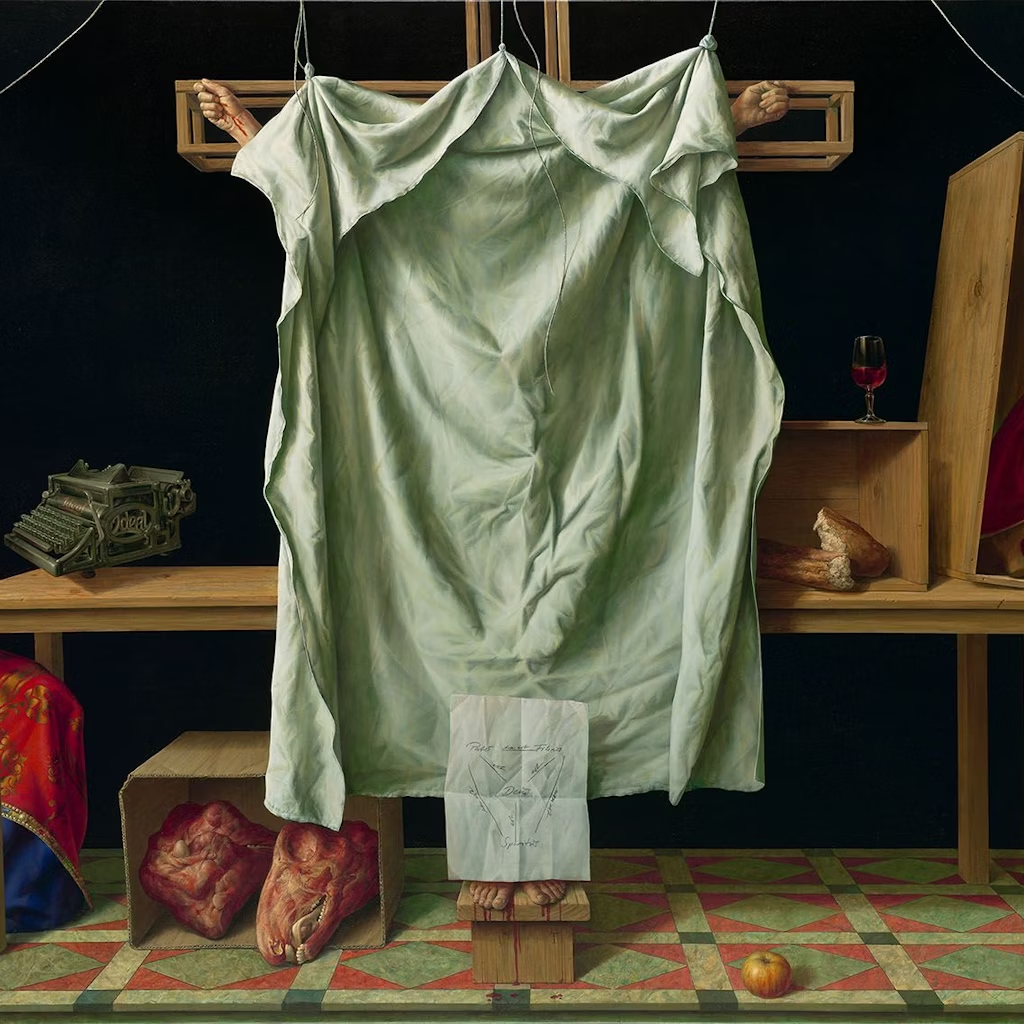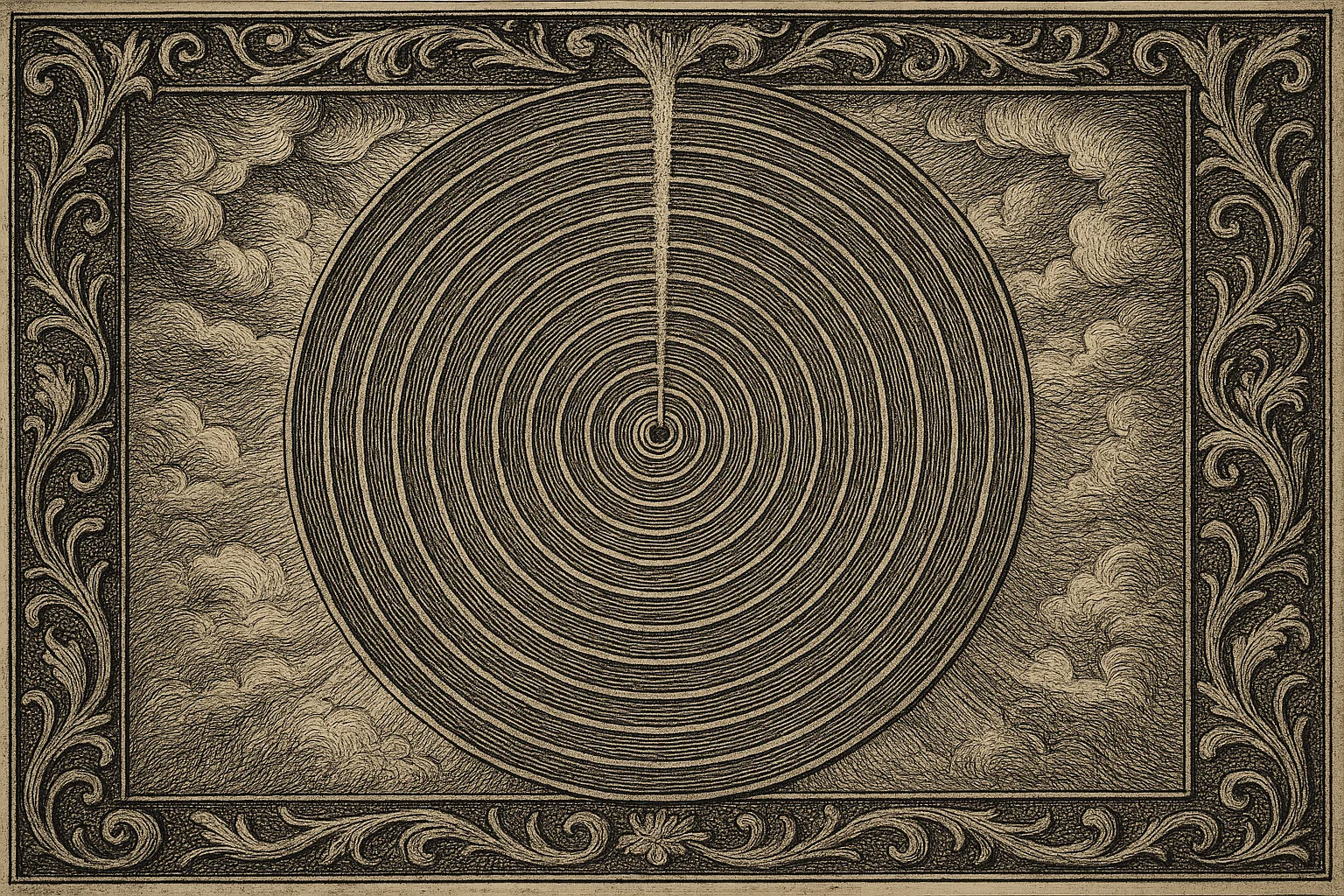The notion of the Deus Absconditus, or the “Hidden God”, has haunted mystical and philosophical traditions from the ancient world through the Renaissance and into modern mysticism. Rooted in biblical sources (notably Isaiah 45:15: “Verily, thou art a God that hidest thyself”), it was seized upon by Hermetic philosophers, Christian Kabbalists, and thinkers like Nicholas of Cusa, Luther, and the esoteric writers of the 16th century. This God is not the absent god of atheism, but rather a presence so immense and ungraspable that it must be known by its concealment: a divinity whose hiddenness is itself the sign of its reality.
What remains veiled is not absence, but an invisible celebration. At the root of the world lies a foundation of communion and secret alliance, a feast to which all belong, though few recognize it. The Hidden God upholds the very architecture of the cosmos like a house built in silence, where souls are eternally reunited. The world goes on unaware, already gathered in a veiled banquet: an essential union, a secret marriage, a promise fulfilled far from prying eyes but felt in the intimate depths of every being.
Though concealed, the Hidden God is not static. There is inexorable movement, a conducting force, an unseen guide propelling humanity toward its true horizon, whether willingly or not. Stagnation is an illusion. Behind every veil, a steady hand governs the reins of time. The Deus Absconditus is the secret engine, the inevitable journey, the conquest that unfolds beyond the surface of things.
Mystery it cultivates. The Hidden God transforms the world through fertile waiting, hidden sowing, and the slow ripening of what is to come. We are taught to trust the timing of the invisible, to value the interval, the season, the sacred patience. This is a pedagogy of silent growth and of the harvest that arrives only when the unseen has finished preparing the ground.

Yet the shadow of this mystery is impatience. A frustration with the veiled, a doubt cast upon the slowness of the sacred. The posture required is not one of mere submission, but recognition: to acknowledge openly the triumph of the invisible, to honor the success of a spirit unseen. To approach the Hidden God is to summon the courage to celebrate victories the world cannot comprehend, to bear the symbols of the invisible with nobility, to raise the standard of faith in the unseen without shame. It is the victory of those who persist and bear witness.
What we encounter, in truth, is the metaphysical construction of something for which we still lack a name. There are moments of awkwardness and error. Strangers making the wrong call in a shop, someone promising “maybe tomorrow,” others feigning cleverness just to sharpen their edge. It is, perhaps, just good sense that is needed: the humility to wait until the One appears in such magnitude that all else will fall away. Until then, hands in pockets, with a sacred will to disappear, we linger in the hidden room. Learning, waiting, bearing witness.
The Hidden God is not a silent void but the secret feast. To live in its presence is to walk in a world already redeemed, even as the redemption remains veiled.
